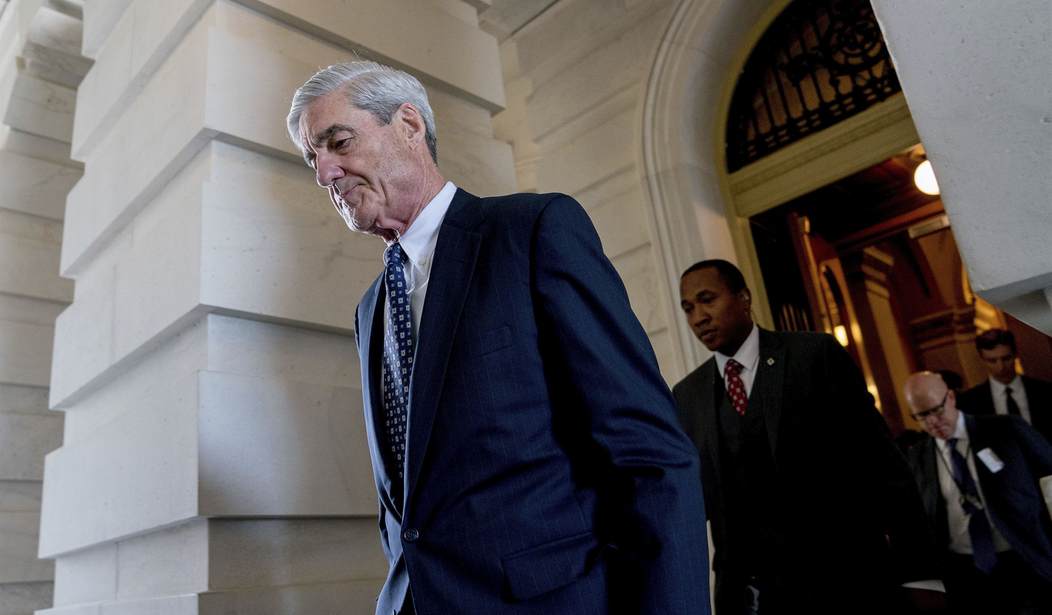In June, William Barr -- now President Trump's nominee-in-waiting to replace Jeff Sessions as Attorney General -- wrote a detailed and narrowly-tailored legal memo regarding specific elements of Robert Mueller's special counsel investigation. He sent his analysis to Deputy AG Rod Rosenstein, the man overseeing the Mueller probe, as well as the chief of the Office of Legal Counsel at the Justice Department. Because this memorandum was not a sweeping endorsement of the investigation as it exists (to put it lightly), some legal experts are saying Barr has disqualified himself from presiding over the probe after he's confirmed -- if he's confirmed at all. Here's a CNN analyst and former federal prosecutor affirming a critique leveled by a former Democratic Justice Department spokesman:
What caused a high-powered lawyer to spend hours writing a detailed, 20-page memo to send to Trump’s lawyers and Rosenstein criticizing Mueller?
— Renato Mariotti (@renato_mariotti) December 20, 2018
Either he is really worked up about Mueller’s investigation or he was angling for an Administration job. He shouldn’t oversee Mueller. https://t.co/eT4syUftuu
If Barr has pre-judged the case from the sidelines, or deliberately chose to flaunt his concerns about Mueller's approach and legal theories in order to attract a job offer from the president, such things could surely be cited as grounds for recusal, right? Not so fast, argues Andy McCarthy, another former federal prosecutor (who can be sharply critical of Trump when the president oversteps). He says that Barr's work is excellent and appropriate:
Barr, whom President Trump has nominated to be the next attorney general, was not prejudging the facts. He was addressing the law and Justice Department policy. With great persuasive force, the 19-page memo posits two contentions. First, based on what is publicly known, the special counsel’s theory of obstruction is legally flawed. Second, if a Justice Department investigation is going to be used to take down a democratically elected president, the social cohesion of our body politic demands that it be over a clear, very serious crime, not a novel and aggressive theory of prosecution. Readers of these columns will not be surprised to learn that I agree emphatically with the first point. As for the second point, I can’t fathom a meritorious disagreement with it.
But that is beside the point. What matters is that it was entirely proper for Barr to weigh in on these questions in the thoughtful manner he chose. As a former attorney general, he directed his views to Rod Rosenstein and Steve Engel, respectively the deputy attorney general and the head of the OLC, the lawyers’ lawyers at the Justice Department. Barr was not only attorney general in the Bush 41 administration; he also served in the weighty positions that Rosenstein and Engel now occupy. He is intimately familiar with the difficult decisions they have to make and the Justice Department guidelines and processes that are in place to guide decision-making.
Recommended
On the question of recusal, McCarthy calls critics' demands "absurd," pointing out that career DOJ ethics officials -- not Trump appointees -- reviewed the content and reached the opposite conclusion, based on the merits:
The suggestion that there was something untoward about Barr’s submission is absurd. This, no doubt, is why the ethics analysts at the Justice Department concluded that the memo raises no issues of disqualification or recusal in connection with Barr’s nomination to be attorney general. These are the same career lawyers who advised former attorney general Jeff Sessions to recuse himself from the Russia investigation that Mueller is now conducting, much to the president’s chagrin and the applause of his critics. The difference is patent. While I did not agree with the timing and scope of Sessions’s recusal, the problem was that he was an actor in the transactions under investigation..Barr, by contrast, had no involvement in the transactions Mueller is probing — neither suspected (but unproven) “collusion” between the Trump campaign and the Kremlin nor purported “obstruction.” He is merely a commentator, albeit an influential and extraordinarily careful one, who opined on a legal issue of great public interest. On that score, note that Barr took pains to caveat that many facts of Mueller’s investigation are unknown to him and the rest of the public.
Voices in the mainstream media are starting to blast Barr as an "anti-Mueller zealot," while some top Democrats are already rushing to insist that Trump should withdraw Barr's nomination:
Mark Warner, top Dem on Senate Intel, tells me that Trump should withdraw William Barr's nomination as attorney general after memo surfaced showing his concerns about Mueller probe. Warner also criticizes Whitaker move not recuse. And he discusses Senate Intel work w/Mueller team pic.twitter.com/5FAsgU13lX
— Manu Raju (@mkraju) December 20, 2018
This strikes me as an overreaction. If you read the memo, Barr makes reasonable, salient, relevant points about discrete aspects of the Mueller probe. His analysis is cautious and serious. He should not withdraw as the nominee, but he should be grilled on the contents of his document during his confirmation hearings. It offers ample material for skeptics to dig into his thinking and ask challenging questions about how he'd handle the investigation, or its aftermath, impartially. Such an exercise would be worthwhile and enlightening; premature, partisan judgments therefore ring hollow, and efforts to force Barr out now seem unwise. By the way, career ethics experts also concluded (in a "close call") that the acting AG is not required to recuse himself from supervising Mueller -- but serious questions remain about whether he has legitimate constitutional authority to carry out major duties of the position, as a non-Senate confirmed official.























Join the conversation as a VIP Member